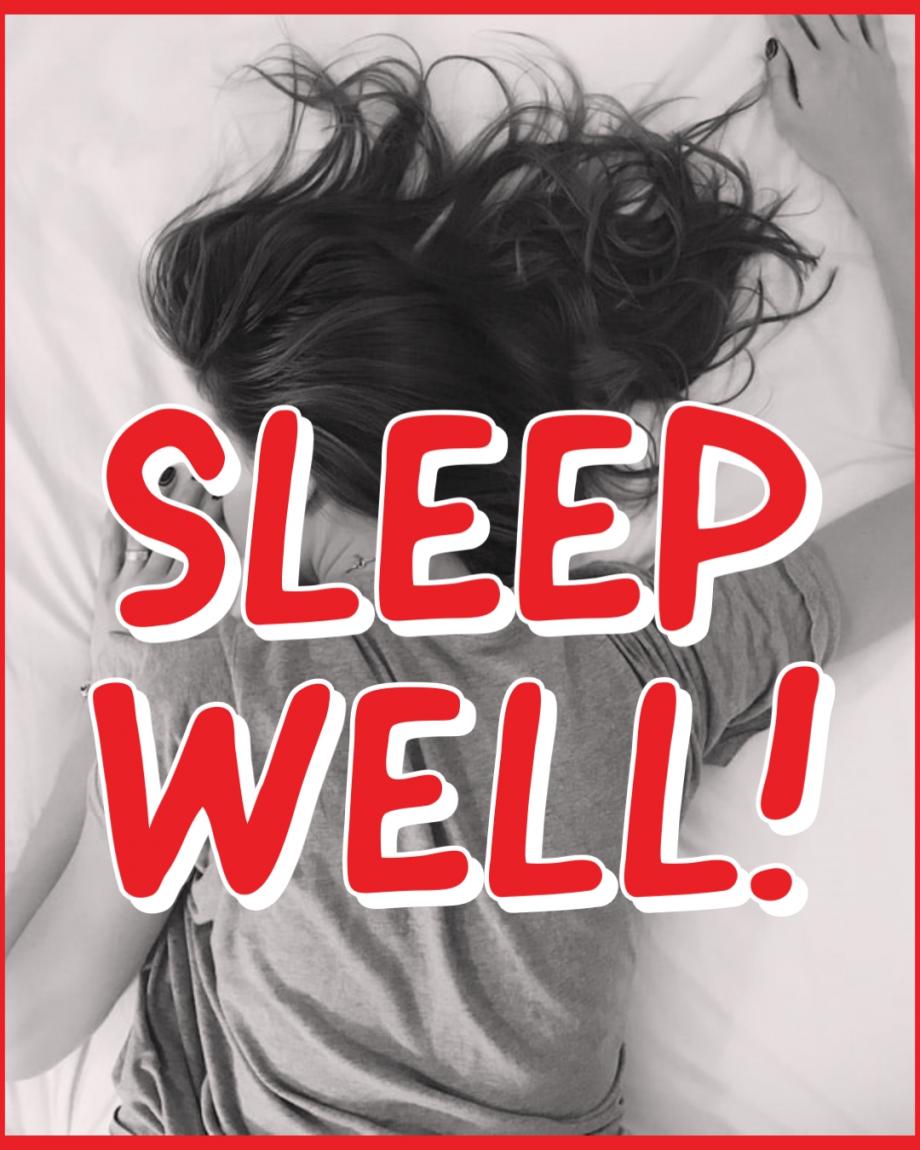Get Your Rest!
Control the controllables! In this day and age we are looking for the quick fixes in health but it is time to get back to the basics. Everyone knows to be active, have proper nutrition and stay hydrated, but how much and what quality of sleep do you get each night? It is time to focus on getting a better night of rest! Numerous studies have shown a correlation in quality of sleep to alertness and performance, and that a good night’s sleep may reduce the risk of illness and injury.
“62% of people experience a sleep problem several nights a week”
What is Sleep Hygiene?
 Getting quality sleep is vital in protecting you mental health, physical health and overall well-being. Sleep has a significant effect on our mood and attitude while we’re awake. During sleep, your body is working to support healthy brain function while working to maintain and improve your physical and emotional health.
Getting quality sleep is vital in protecting you mental health, physical health and overall well-being. Sleep has a significant effect on our mood and attitude while we’re awake. During sleep, your body is working to support healthy brain function while working to maintain and improve your physical and emotional health.
Research shows that poor sleep has immediate negative effects on your hormones, exercise performance, and brain function. Long periods of sleep deficiency can accumulate overtime and lead to chronic health problems including weight gain and increse of disease risk in adults and children.
A good night’s sleep is just as important as regular exercise and a healthy diet. Here are some tips to sleep better at night.
-Increase bright light exposure during the day
Daily sunlight or artificial bright light can improve sleep quality and duration, especially if you have severe sleep issues or insomnia.
-Reduce blue light exposure in the evening
Blue light tricks your body into thinking it’s daytime. There are several ways you can reduce blue light exposure in the evening.
-Don’t consume caffeine late in the day
Caffeine can significantly worsen sleep quality, especially if you drink large amounts in the late afternoon or evening.
-Reduce irregular or long daytime naps
Long daytime naps may impair sleep quality. If you have trouble sleeping at night, stop napping or shorten your naps.
-Try to sleep and wake at consistent times
Try to get into a regular sleep/wake cycle — especially on the weekends. If possible, try to wake up naturally at a similar time every day.
-Take a supplement
A melatonin supplement is an easy way to improve sleep quality and fall asleep faster. Take 1–5 mg around 30–60 minutes before heading to bed. Several supplements, including lavender and magnesium, can help with relaxation and sleep quality when combined with other strategies.
-Don’t drink alcohol
Avoid alcohol before bed, as it can reduce nighttime melatonin production and lead to disrupted sleep patterns.
-Optimize your bedroom environment & temperature
Optimize your bedroom environment by eliminating external light and noise to get better sleep. Test different temperatures to find out which is most comfortable for you. Around 70°F (20°C) is best for most people.
-Don’t eat late in the evening
Consuming a large meal before bed can lead to poor sleep and hormone disruption. However, certain meals and snacks a few hours before bed may help.
-Relax and clear your mind in the evening
Relaxation techniques before bed, including hot baths and meditation, may help you fall asleep.
-Rule out a sleep disorder
There are many common conditions that can cause poor sleep, including sleep apnea. See a healthcare provider if poor sleep is a consistent problem in your life.
-Get a comfortable bed, mattress, and pillow
Your bed, mattress, and pillow can greatly affect sleep quality and joint or back pain. Try to buy a high quality bedding — including a mattress — every 5–8 years.
-Exercise regularly — but not before bed
Regular exercise during daylight hours is one of the best ways to ensure a good night’s sleep.
-Don’t drink any liquids before bed
Reduce fluid intake in the late evening and try to use the bathroom right before bed.
Sleep like a Pro!
“There’s a 100 percent correlation in quality of sleep to performance on the field,” says Steve Smith, senior director of health, wellness and performance for Washington’s professional basketball team, the Wizards. “Acutely and chronically, sleep impacts reaction time, alertness and the ability to play to talent level.” Studies have shown that getting a good night’s sleep may help reduce the risk of injury and illness in athletes.
Sleep and its relationship to performance is a relatively new focus for many athletes, says Chris Winter, author of “The Sleep Solution: Why Your Sleep Is Broken and How to Fix It,” and consultant to the Wizards. “As the field of sports performance has evolved, we’ve covered most of the bases,” including training, nutrition and hydration, “and sleep is the last to fall into place.”
Continue reading the article on how the Elite deal with Sleep Anxiety and Performing at their Best with Rest – Read Article Here
Have a Concussion?
A huge part of managing sleep involves working on developing a consistent sleep schedule (i.e. sleeping and waking around the same time each day). If you have trouble falling asleep at night, then getting in the routine of doing something relaxing before bed can help (e.g. reading or listening to an audiobook or podcast or soothing music, taking a warm bath, meditating or deep breathing, knitting, doing puzzles, etc. Continue reading and check out these 6 tips on sleeping with a Concussion – View Here
